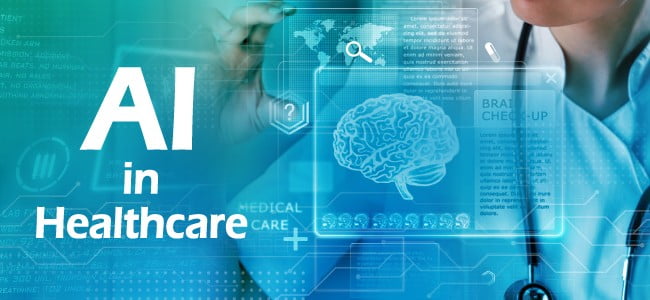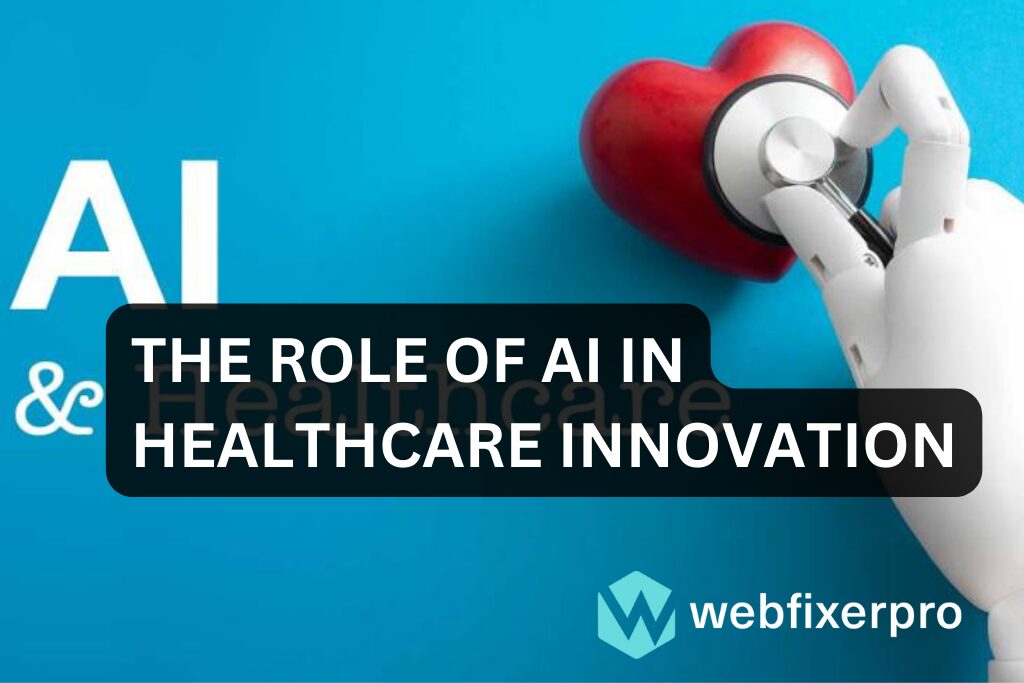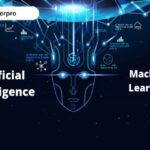In the rapidly evolving landscape of healthcare, Artificial Intelligence (AI) stands out as a revolutionary force, transforming the way medical professionals diagnose, treat, and care for patients. The integration of AI technologies brings unprecedented opportunities and challenges, marking a new era of innovation in the healthcare sector.
Introduction
AI in healthcare refers to the application of advanced technologies that enable machines to perform tasks that traditionally require human intelligence. The role of AI in healthcare innovation is paramount, as it not only enhances the efficiency of medical processes but also contributes to more accurate diagnoses and personalized treatment plans. and AI a Beginner’s Guide
Artificial Intelligence (AI) Applications in Diagnosis
One of the key areas where AI excels is in streamlining diagnostic processes. Machine learning algorithms analyze vast datasets to identify patterns and anomalies, providing healthcare professionals with valuable insights for quicker and more precise diagnoses. The integration of AI in diagnostic procedures marks a significant leap forward in medical efficiency.
Artificial Intelligence in Treatment Planning
The application of AI extends beyond diagnosis to treatment planning. With AI-driven systems, healthcare providers can tailor treatment options to individual patients, considering factors such as genetic makeup and previous medical history. This personalized approach not only improves patient outcomes but also optimizes drug discovery processes.
Robotics in Surgery
The marriage of AI and robotics has revolutionized surgical procedures. Robotic-assisted surgeries offer unparalleled precision and efficiency, reducing the invasiveness of procedures and minimizing recovery times. The integration of AI in surgery marks a paradigm shift in the field, with machines working in tandem with skilled surgeons to achieve optimal results.
Artificial Intelligence in Patient Care
AI plays a crucial role in patient care, especially in the era of telemedicine. Remote patient monitoring through AI-driven systems allows healthcare professionals to track patients’ health in real time, enabling early intervention and personalized healthcare plans. This not only improves patient outcomes but also enhances the overall efficiency of healthcare delivery.
Data Security and Privacy Concerns
As AI becomes more ingrained in healthcare, concerns about data security and patient privacy rise. It is essential to establish robust measures to ensure the confidentiality of patient data and address ethical considerations surrounding the use of AI in healthcare settings. Striking a balance between innovation and ethical standards is critical for the successful implementation of AI.
Challenges and Opportunities
The integration of AI in healthcare comes with its own set of challenges, including technological barriers and resistance to change. However, these challenges present opportunities for innovation and the potential for groundbreaking advancements in medical science. Overcoming implementation hurdles is crucial for unlocking the full potential of AI in healthcare.
AI’s Impact on Healthcare Professionals

The adoption of AI in healthcare redefines the roles and responsibilities of medical professionals. It’s not about replacing human expertise but rather enhancing it. Collaboration between AI systems and healthcare professionals results in more informed decision-making and improved patient outcomes.
Future Trends in Artificial Intelligence Healthcare
Looking ahead, the future of AI in healthcare is promising. Continued advancements in AI technology will likely lead to more sophisticated applications, from predictive analytics to the development of innovative medical solutions. The evolving landscape holds great potential for AI-driven medical breakthroughs.
Public Perception and Trust
Building trust in AI-driven healthcare solutions is crucial for widespread acceptance. Addressing public concerns and skepticism requires transparent communication about the benefits and limitations of AI in healthcare. Establishing trust is fundamental to fostering a positive reception of AI technologies among the general population.
Case Studies
Examining real-world case studies showcases the success of AI implementation in healthcare. From improved diagnostic accuracy to enhanced patient outcomes, these examples provide valuable insights into the tangible benefits of integrating AI into medical practices. Lessons learned from successful cases inform future developments in the field.
Government Regulations and Policies
As AI becomes integral to healthcare, the need for robust regulations and policies is evident. Current frameworks governing AI in healthcare must evolve to keep pace with technological advancements. Future policy considerations should focus on ensuring ethical AI use, protecting patient rights, and fostering innovation responsibly.
Global Initiatives and Collaborations
International collaboration is key to advancing AI in healthcare on a global scale. Initiatives that bring together experts, researchers, and policymakers from different regions contribute to a collective effort to address global health challenges. Collaborative projects foster innovation and accelerate progress in the field.
Ethical Considerations in Artificial Intelligence Healthcare
Balancing innovation with ethical guidelines is paramount in the development and deployment of AI in healthcare. Ensuring fairness, inclusivity, and transparency in AI applications are ethical imperatives. Striking a harmonious balance between technological advancement and ethical considerations is essential for the sustained success of AI in healthcare.
Conclusion
In conclusion, the role of AI in healthcare innovation is transformative. From revolutionizing diagnostic processes to reshaping treatment approaches, AI has emerged as a catalyst for positive change in the medical field. As technology continues to advance, the integration of AI is poised to redefine healthcare delivery, making it more personalized, efficient, and accessible.
FAQs
Q: Is AI fully replacing human doctors in healthcare?
No, AI is designed to enhance and support the capabilities of healthcare professionals, not replace them.
Q: How can AI address data security concerns in healthcare?
Implementing robust encryption and access control measures ensures the confidentiality and privacy of patient data.
Q: What are the current government regulations governing AI in healthcare?
Regulations vary by region, but many countries are developing frameworks to govern the ethical use of AI in healthcare.
Are there any AI-driven healthcare initiatives in developing countries?
A: Yes, several global initiatives aim to bring AI-driven healthcare solutions to developing regions, improving access to quality medical care.
Q: How can healthcare professionals adapt to the integration of AI in their practices?
Continuous education and training programs can help healthcare professionals adapt to and make the most of AI technologies in their roles.



